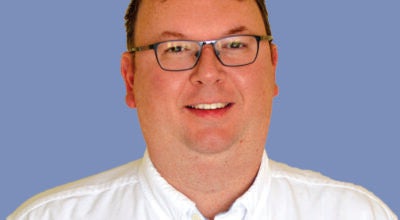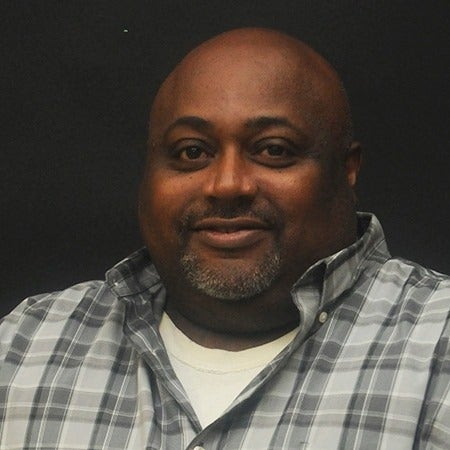Mentor kept Dr. Mitchell’s dream alive
Published 4:43 pm Saturday, October 14, 2017
By JAMES MITCHELL | Wallace Community College president
I’ll never forget the night before I began my college career. I felt all the emotions anyone starting college experiences, especially those of us who didn’t come from homes where college was a family tradition or a basic expectation.
I was nervous but excited as the big day drew near. And then it hit me. As I reviewed the remaining fees to pay before I could be admitted, I discovered a problem. I was $100 short.
My excitement quickly turned to despair as I felt my dream slipping through my fingers. I was crushed. I sat on the edge of my makeshift bed at my cousin’s mother’s home and wept.
My story is like many I hear at Wallace Community College Selma every day.
I grew up rough, tough and poor. Nothing came easy, and little was given to me. I had to earn everything I got with the help of family, teachers, friends and mentors.
None were a bigger inspiration to me than my cousin, the late Dr. Harold Mitchell.
Harold’s family opened their home to me after I was kicked out of my own home in the 10th grade. I didn’t get into trouble, flunk out of school or even get crossed up with my uncle, who was the man of the house where I grew up. I ate my uncle’s sandwich.
That’s what led to upheaval in my life. One night, I came home late from football practice weary and hungry. I opened the refrigerator and saw a sandwich. So, I ate it. As it turned out, it was my uncle’s lunch for the following day.
Believe it or not, that was enough to get me kicked out of the home—for good. My uncle had some issues I didn’t fully understand at the time. I’ve long since forgiven him. It’s part of my journey and it made me who I am today.
Harold and his family quickly took me in, offering love, support and a fold-away cot in the hall leading to the bathroom shared by 12 of us living together in the modest house. Harold was 10 years older than me, but we were always close. He became more than my best friend and encourager. He became my mentor. He was always my hero.
On that memorable night before I was to start college, Harold found me weeping.
“What’s the matter?” he asked. “I can’t go to college,” I responded. “I’m $100 short.”
My dream suddenly felt impossibly out of reach, shattered by many of the same obstacles and perceptions so many in the Black Belt Region face. It felt as though education was only for the privileged few in that moment, not for poor people like me.
But Harold told me to wipe away the tears.
“Go to bed,” he said. “Get up in the morning and get ready to go to college.”
I went to bed, worried and anxious.
The next morning, Harold handed me a check for $100 and had a simple message. “James, go to college.”
That’s how my academic career that put me on a path to earning a degree and eventually an EdD began. It would not have happened without the help of Harold, who was more than a cousin. He was a mentor. He was a coach.
In addition to being the man who told me college was still in reach when it seemed my dream was in doubt, he was the mentor who encouraged me to seek a career in higher education administration. He told me, “James, you can make a difference in the lives of so many people.” And he did, serving as president of Roanoke Chowan Community College for 15 years.
Harold, who was the best kind of friend a young man from tough circumstances can have, is the reason I am privileged to serve as president of Wallace Community College Selma today. He is the reason I put students first and the reason I share my story individually with students who need to hear it.
Harold recently passed away, and his death was like losing a brother. But the celebration of his life and all he did for me and so many others he served reminded me of the obligation we have at Wallace Community College Selma. We must do more than admit and register students and then walk them across the stage at graduation.
We have an obligation to meet the needs of the total student. The vast majority of students in our region are first-generation college students. Some don’t believe college or a community college is in reach to begin with. And they don’t know what they don’t know.
They often are unfamiliar with financial assistance that does make community college affordable. They are overwhelmed by the challenges of life—paying the light bill and putting food on the table—and they don’t have anyone to guide them through the process of applying for college or even to encourage them that their dream is possible. Some young men and women who walk in our doors have never heard of a curriculum. One young man looking to learn a trade didn’t know what a schedule was the first day he came to us.
That is why I made a commitment a few years ago to create a robust student coaching program at Wallace Community College Selma. Last year, we served about 1,200 students at various levels through our student coaching program.
Like many community colleges, we were proficient operating under the old model of academic advising and counseling. But it became clear to us the more we researched the issue and the more stories we heard that was not enough.
We took our existing staff and retrained them through an acclaimed program, and we added additional counselors to boost our capacity to help students. Our goal was to be able to offer student coaching to every student on our campus, knowing some have different levels of need.
Today, student coaches, guide, mentor and help our traditional students, online students and our night students. And it is paying big dividends. Our retention rate has improved, and I’ve heard story after story about students who were about to quit school because of some challenge they faced that had nothing to do with academic performance.
I’m proud of the work all of our student coaches are doing every day under the leadership of Gloria Simmons, who heads up the department. I deeply appreciate our staff for understanding the need and pushing for this positive change, which I believe will change lives of those who need a boost in our community and our service area.
This fall, we also opened a new Student Success Center on campus, a one-stop shop where our students can get the help they need for both academic and non-academic issues.
In the end, that is what education is about. It is about reaching people where they are and guiding them to the place where their dreams can come true. It is no secret that our community and our service area has more needs than most, but I believe education is the answer to the challenges we face.
Education is the door of opportunity some need a little encouragement to knock on and walk through. As my own story proves, all it takes for some to reach higher than they ever thought possible is a lot of encouragement and a little help navigating the system. My mentor taught me that. God rest his soul.



